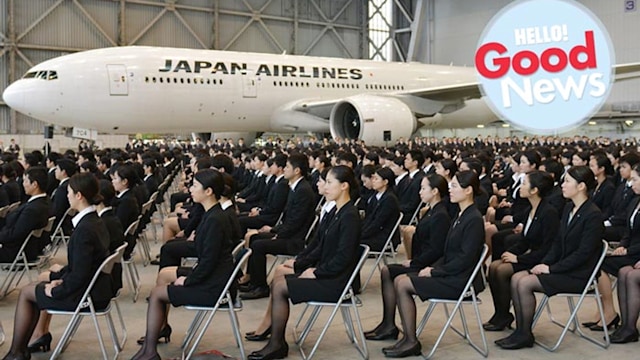Following a national #KuToo movement, female flight attendants working for Japan Airlines will no longer be required to wear skirts and heels. The firm has become one of the first major Japanese companies to ditch compulsory high-heeled footwear and will allow nearly 6,000 female members of staff to choose shoes that “best fit their needs”, after an online petition sparked over 32,000 signatures.
The changes for cabin crew take place this April
The changes, which came into place in April, are thanks to the #KuToo campaign, which was started by actress and activist Yumi Ishikawa, who took to Twitter after she was forced to wear heels during her job at a funeral parlour. The hashtag is a play on the Japanese words for 'shoe' (‘kutsu’) and 'pain' (‘kutsuu’), as well as, of course, a nod on the global #MeToo movement, which sparked a global conversation around sexual harassment and women’s rights.
WATCH: Meghan Markle's Feminist Quotes
Yumi says that firms should protect women’s health and safety, and told Reuters: “It’s a great step given that Japan Airlines is such a big company”. “It’s not only airlines – there are also hotels, department stores, banks and a lot of other companies with this requirement. I hope they follow this example,” she added.
READ: Vans launches sensory-friendly range of shoes for customers with autism
Japan is ranked 121 out of 153 countries in the World Economic Forum's latest Global Gender Gap index, and although Prime Minister Shinzo Abe has said that he opposes dress requirements for women, ex-health, labour and welfare minister Takumi Nemotowhen said that they were “necessary and appropriate” and “generally accepted by society”.
Japan Airlines is the first major firm to announce dress code changes
A spokesperson for Japan Airlines told Reuters: “This will be the first time to introduce trousers and to provide additional options for footwear,” and that the new policy is aimed at creating a more “diverse working environment”. This is certainly a step in the right direction for gender equality, and let’s hope that 2020 sees more firms following suit.
